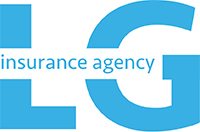In the construction industry, where risks and uncertainties are an everyday part of the job, being well-informed about common insurance claims is crucial. From property damage to workers’ compensation, delays and disruptions, equipment issues, and professional liability, each of these areas carries its own set of challenges and solutions. We aim to shed light on these critical issues, providing insight into the common claims contractors face and highlighting the importance of having comprehensive insurance coverage. Whether you’re a contractor looking to safeguard your business or a client seeking to understand the complexities of construction projects, this guide will equip you with the knowledge you need for a more secure and successful project outcome.
Property Damage
Property damage is a common and significant concern in the construction and renovation industry. It refers to any damage that occurs to the property being worked on or to adjacent properties during the course of a project. This can happen due to a variety of reasons, ranging from accidental incidents to unforeseen structural issues.
Types of Claims:
- Accidental Damage to the Property: This includes any unintentional harm caused to the building or site during the project, such as broken windows, damaged walls, or harmed landscaping.
- Damage to Neighboring Properties: During construction, adjacent properties might suffer damages like cracks in walls, broken fences, or underground utility damage.
- Structural Damages: In some cases, construction work can lead to structural issues in the property being renovated, such as foundational cracks or ceiling collapses.
What Preventative Measures Can Be Implemented?
- Thorough Site Assessment: Conduct a detailed assessment of the site before starting the project to identify and bring attention to potential risks.
- Use of Protective Measures: Implement protective measures like barriers, dust sheets, and proper signage to minimize the risk of accidental damages.
- Regular Monitoring: Regularly inspect the site and surrounding areas to identify and address any potential damage early on.
- Training and Awareness: Ensure that all employees and subcontractors are adequately trained, insured and aware of the importance of property safety.
- Quality Equipment and Materials: Use high-quality materials and equipment to reduce the risk of malfunctions or breakdowns that could lead to property damage.
- Effective Communication: Maintain open lines of communication with clients and neighbors to inform them about the nature of work and potential risks, allowing for proactive measures to be taken.
By understanding and implementing these preventive measures, contractors can significantly reduce the likelihood and severity of property damage, thereby minimizing the need for related insurance claims.
Workers Compensation
Workers’ compensation insurance is essential in the construction industry due to the high-risk nature of the work involved. This type of insurance provides coverage for medical expenses, lost wages, and rehabilitation costs for employees who suffer job-related injuries or illnesses. Given the physical and often hazardous tasks in construction, having this insurance is not just a legal requirement in many states, like New Jersey, but also a critical component of a responsible workplace.
Common Claims:
- Injuries from Falls: One of the most common claims in construction, falls can occur from scaffolding, ladders, roofs, or even on the same level due to tripping over tools or materials.
- Equipment Accidents: These involve injuries resulting from the use or malfunction of construction equipment like power tools, heavy machinery, etc.
- Lifting and Overexertion Injuries: These injuries are caused by lifting heavy materials or repetitive motions, leading to muscle strains, back injuries, and similar issues.
- Exposure to Harmful Substances: Construction workers might be exposed to hazardous materials like asbestos or chemicals, leading to long-term health problems.
Why Workers Comp Is Important for Contractors?
- Financial Protection: Workers’ compensation insurance protects contractors from the financial burden of covering medical costs and lost wages due to work-related injuries. Without it, contractors could face significant out-of-pocket expenses.
- Legal Compliance: In 49 out of 50 states, carrying workers’ compensation insurance is legally mandated for businesses with employees. Non-compliance can result in hefty fines and legal complications.
- Texas is the only state that does not currently require workers compensation insurance by law.
- Employee Well-being: Offering this insurance demonstrates a commitment to the safety and well-being of employees, which can enhance morale and productivity.
- Risk Management: It acts as a critical risk management tool, safeguarding the contractor against lawsuits or claims related to workplace injuries. This protection is vital since even a single injury claim can be financially devastating for a small or medium-sized contractor.
- Business Reputation: Maintaining proper workers’ compensation coverage reflects positively on a contractor’s business ethics and responsibility, enhancing their reputation with clients, employees, and within the industry.
Workers compensation insurance is not just a regulatory requirement but a fundamental aspect of running a responsible and sustainable construction business. It provides protection for both employees and employers, ensuring that the risks associated with construction work are adequately managed and covered. For contractors, this insurance is an investment in their business’s financial stability and ethical standing.
Delays and Disruptions
Delays and disruptions in construction projects can lead to significant financial losses and contractual complications. These unexpected events extend project timelines, often resulting in increased labor costs, extended equipment rentals, and additional overhead expenses. They can also damage the contractor’s reputation and lead to strained client relationships.
Examples of Potential Claims:
- Unforeseen Weather Conditions: Severe weather like heavy rain, snow, or hurricanes can halt construction work, causing significant project delays.
- Supply Chain Issues: Delays in the delivery of essential materials due to supplier problems, transportation delays, or global supply chain disruptions.
- Permit and Approval Delays: Waiting for necessary permits or facing unexpected regulatory requirements can significantly delay a project’s progress.
- Labor Shortages: A lack of available skilled labor can slow down project timelines.
- Design Changes or Errors: Mid-project design changes by clients or errors in initial plans leading to rework and time delays.
How Can You Manage these Risks:
- Contingency Planning: Develop a robust contingency plan for potential delays, including buffer time in project schedules.
- Comprehensive Contracts: Ensure contracts clearly define terms related to delays, including clauses for extension of time and cost escalation.
- Regular Communication: Maintain open and regular communication with clients, suppliers, and team members to promptly address and mitigate any emerging issues.
- Insurance Coverage: Invest in insurance policies that cover financial losses due to delays, such as builder’s risk insurance, which can include coverage for certain types of delays.
- Efficient Project Management: Implement efficient project management practices, including agile methodologies and advanced planning, to anticipate and mitigate potential delays.
- Monitoring Supply Chains: Actively monitor supply chains and maintain good relationships with suppliers to ensure timely delivery of materials.
By effectively managing and mitigating these risks, contractors can reduce the impact of delays and disruptions on their projects. Insurance plays a critical role in this risk management strategy, providing financial protection against the consequences of unforeseen delays.
Equipment Issues – Breakdowns or Stolen
In the construction industry, equipment issues such as breakdowns and theft are not uncommon. The heavy reliance on machinery and tools means that any malfunction or loss can have immediate effects on project progress. Equipment breakdowns can occur due to regular wear and tear, improper use, or lack of maintenance, while theft is a risk given the high value and portability of many construction tools and machines.
Impact on Projects:
- Delays in Project Completion: Equipment issues can halt or slow down construction work, leading to delays in project timelines.
- Increased Costs: Breakdowns often require repairs or replacements, adding unplanned expenses. In case of theft, the cost of replacing stolen equipment can significantly impact the project budget.
- Efficiency Reduction: Dependence on specific machinery means that breakdowns can reduce the efficiency of the construction process, requiring adjustments in workflow and resource allocation.
Insurance Solutions:
- Equipment Breakdown Insurance: This insurance covers the cost of repairing or replacing equipment that breaks down unexpectedly. It ensures that projects can continue with minimal financial disruption.
- Inland Marine Insurance: Ideal for equipment that is frequently moved or used off-site, this insurance covers the loss or damage of equipment during transport or use at different locations.
- Commercial Property Insurance: For stationary equipment, commercial property insurance can cover losses due to theft, vandalism, or damage at the construction site.
- Rental Equipment Insurance: If the contractor rents equipment, this insurance can cover damages or loss of the rented items.
Having comprehensive coverage for equipment is crucial for contractors. It not only protects against financial losses from unexpected equipment issues but also ensures that projects can proceed with minimal interruption. Adequate insurance coverage provides peace of mind and stability, allowing contractors to focus on the successful completion of their projects.
Professional Liability
Professional liability insurance, often referred to as errors and omissions (E&O) insurance, is crucial for contractors. This type of insurance protects against claims arising from errors, negligence, or failures in the professional services provided. In the construction industry, where the outcome heavily depends on the contractor’s expertise and decision-making, professional liability insurance is essential for safeguarding against claims that can arise from professional oversight or mistakes.
Typical Claims:
- Errors in Services: This includes mistakes or oversights in the work performed, such as incorrect installations or the use of inappropriate materials.
- Failure to Meet Project Specifications: Claims can arise if the completed project does not meet the agreed-upon specifications or standards set out in the contract.
- Design Flaws: For contractors involved in design-and-build contracts, errors in design that lead to structural issues or other deficiencies can result in claims.
- Delayed Project Delivery: If a project is delayed due to the contractor’s planning or scheduling errors, it could lead to a claim for any losses incurred by the client as a result.
Protection Measures:
- Financial Safeguard: Professional liability insurance helps in covering legal fees and settlements or judgments if a contractor is sued for professional errors or omissions. This is critical, as these costs can be substantial and potentially detrimental for a business.
- Reputation Management: Beyond financial protection, this insurance can help contractors in handling disputes professionally and efficiently, thereby protecting their reputation in the industry.
- Contractual Requirement: In many cases, having professional liability insurance is a contractual requirement. Clients may demand proof of this insurance to ensure that any potential professional risks are covered.Risk Management Strategy: It forms a part of a comprehensive risk management strategy, enabling contractors to operate with greater confidence, knowing they are protected against the financial implications of claims related to their professional services.
Professional liability insurance is a key component of a contractor’s insurance portfolio. It not only protects against financial loss but also provides peace of mind, allowing contractors to focus on delivering high-quality work without the fear of potential litigation from professional errors.
Find The Right Insurance For Your Business With LG Insurance
Understanding these common claims is not just about mitigating risks but also about ensuring the smooth and successful execution of construction projects. For contractors, having the right insurance coverage is not just a safety net; it’s a fundamental aspect of responsible business management. For clients, being aware of these potential issues helps in choosing well-protected and reliable professionals for their projects.
Don’t leave your project or business exposed to unforeseen risks. Reach out to LG Insurance Agency today to discuss your insurance needs and ensure that you are fully protected against the diverse range of challenges in the construction industry.


